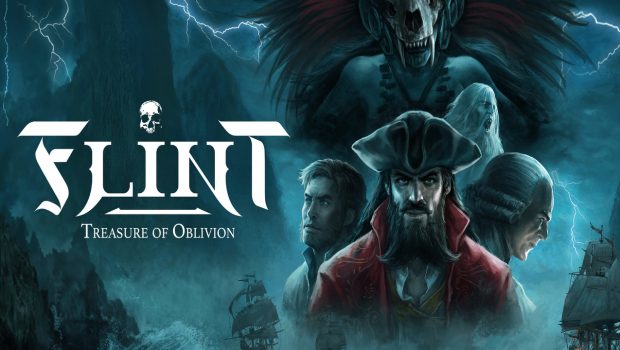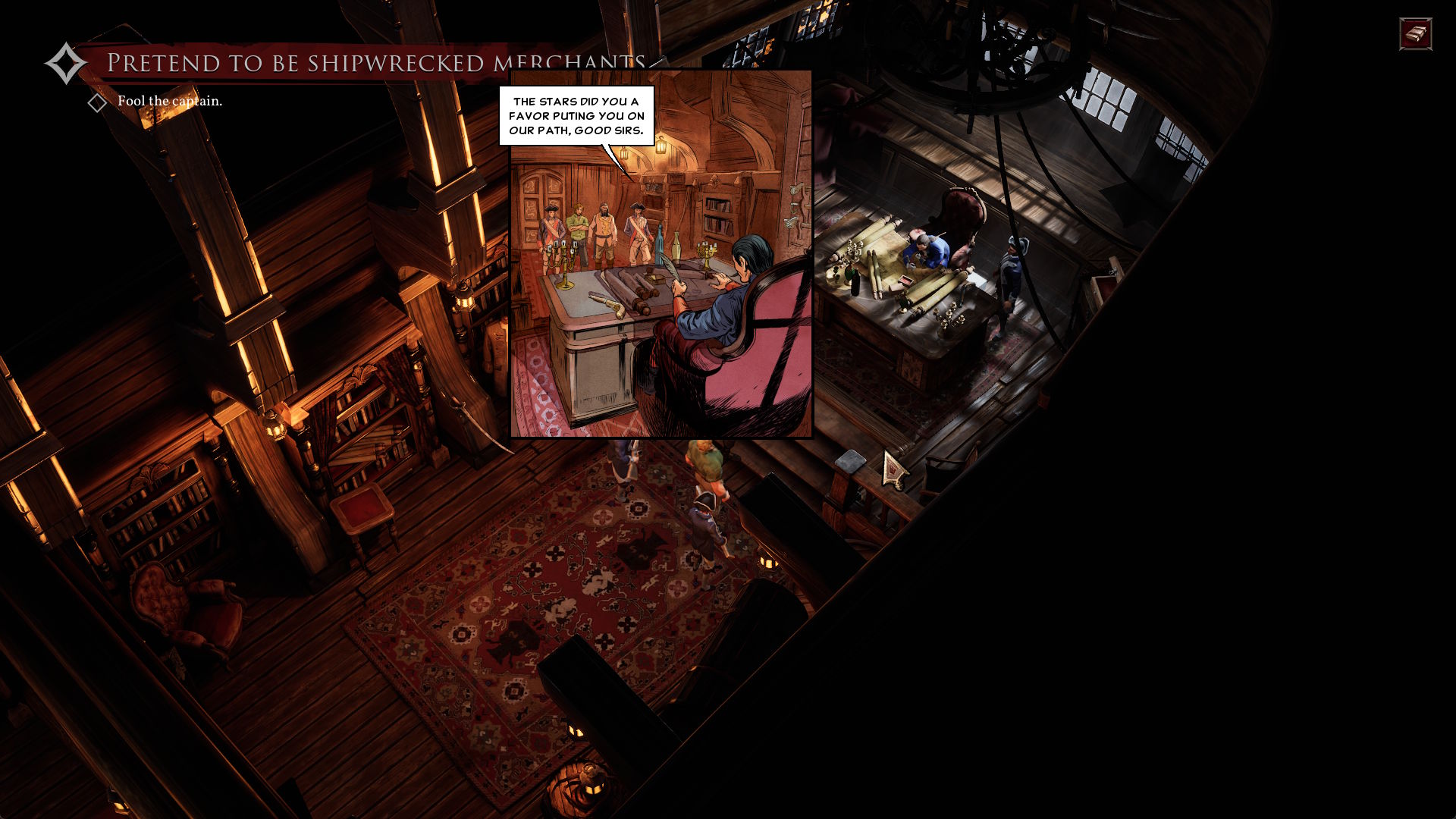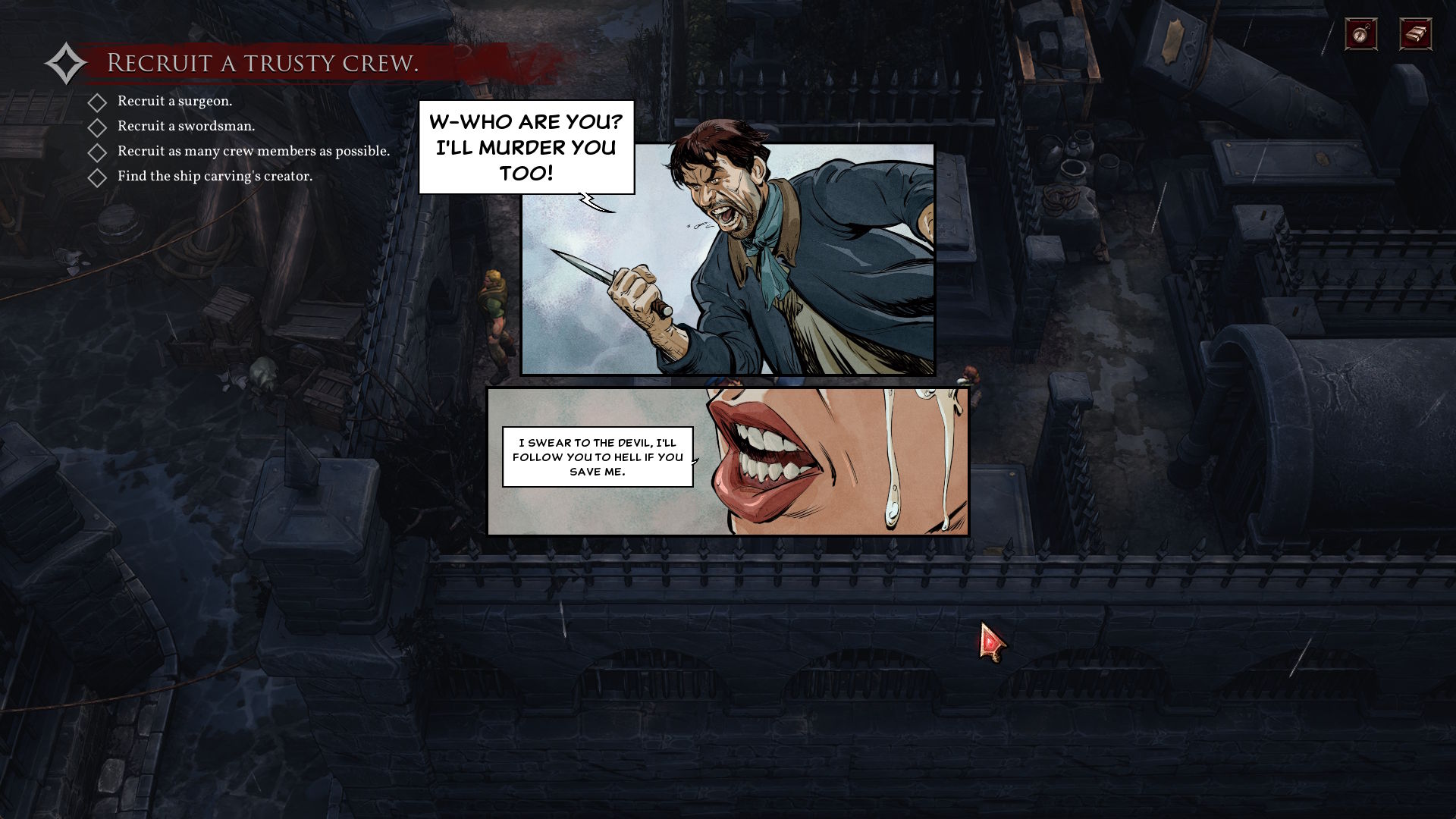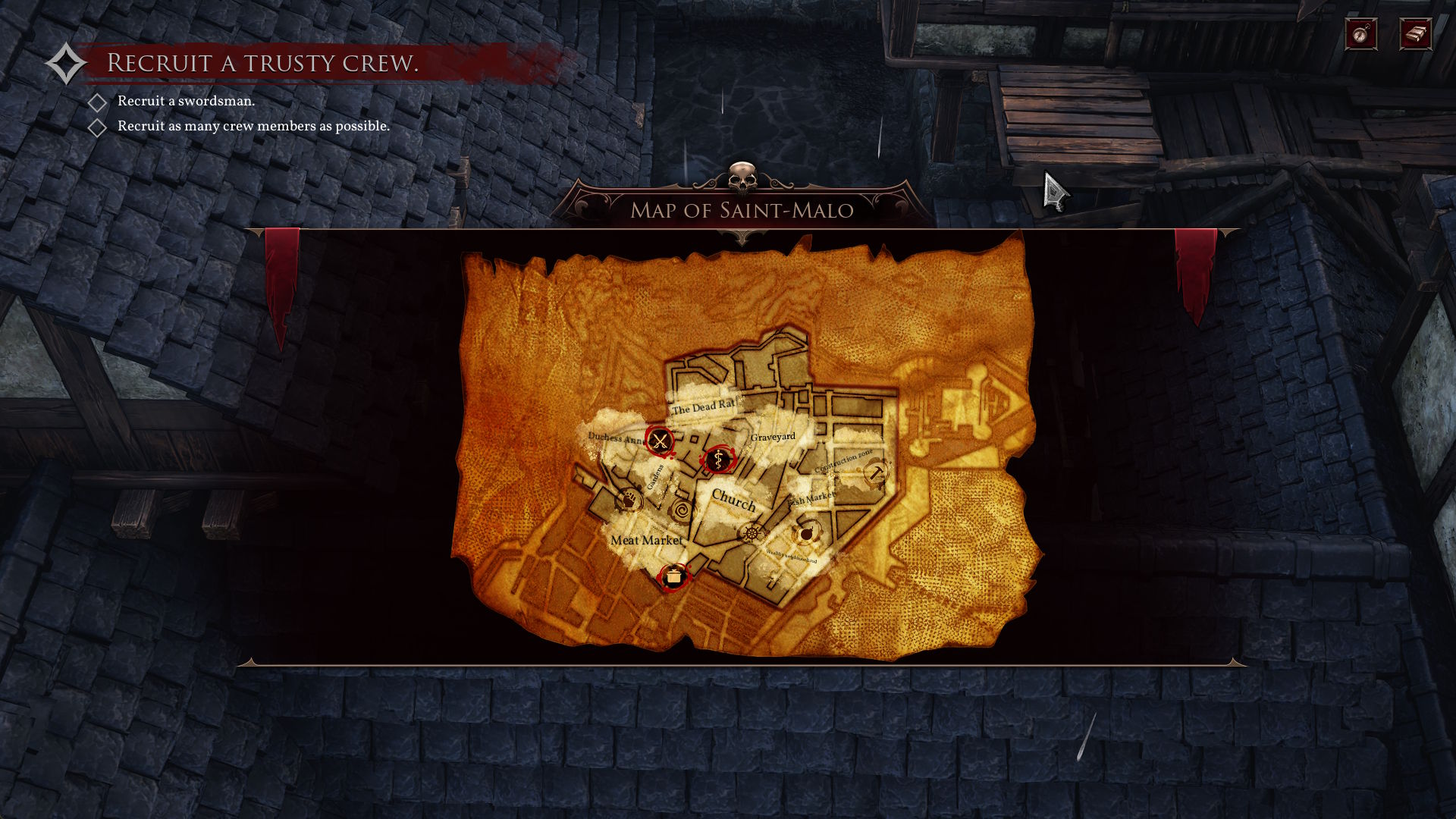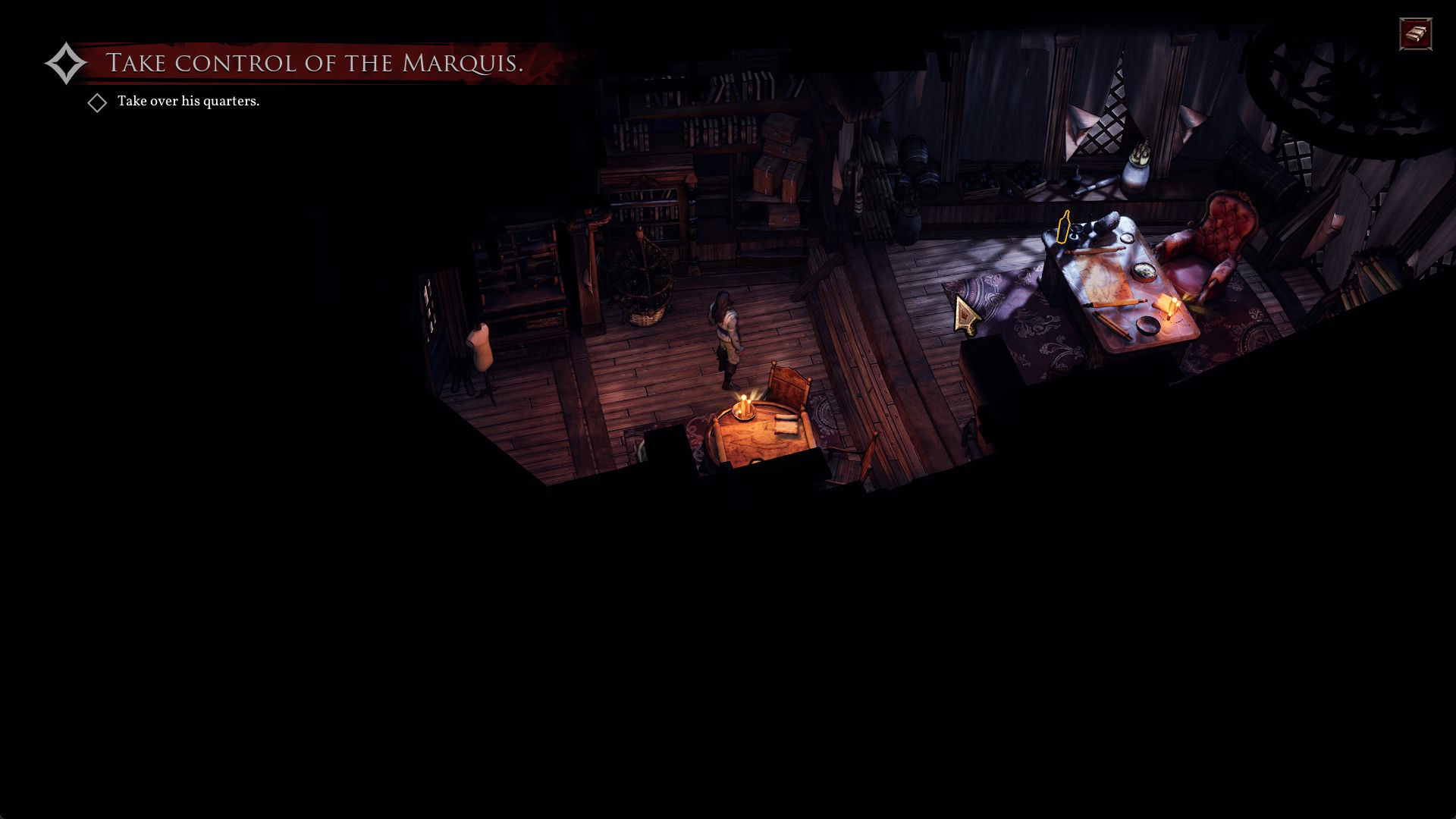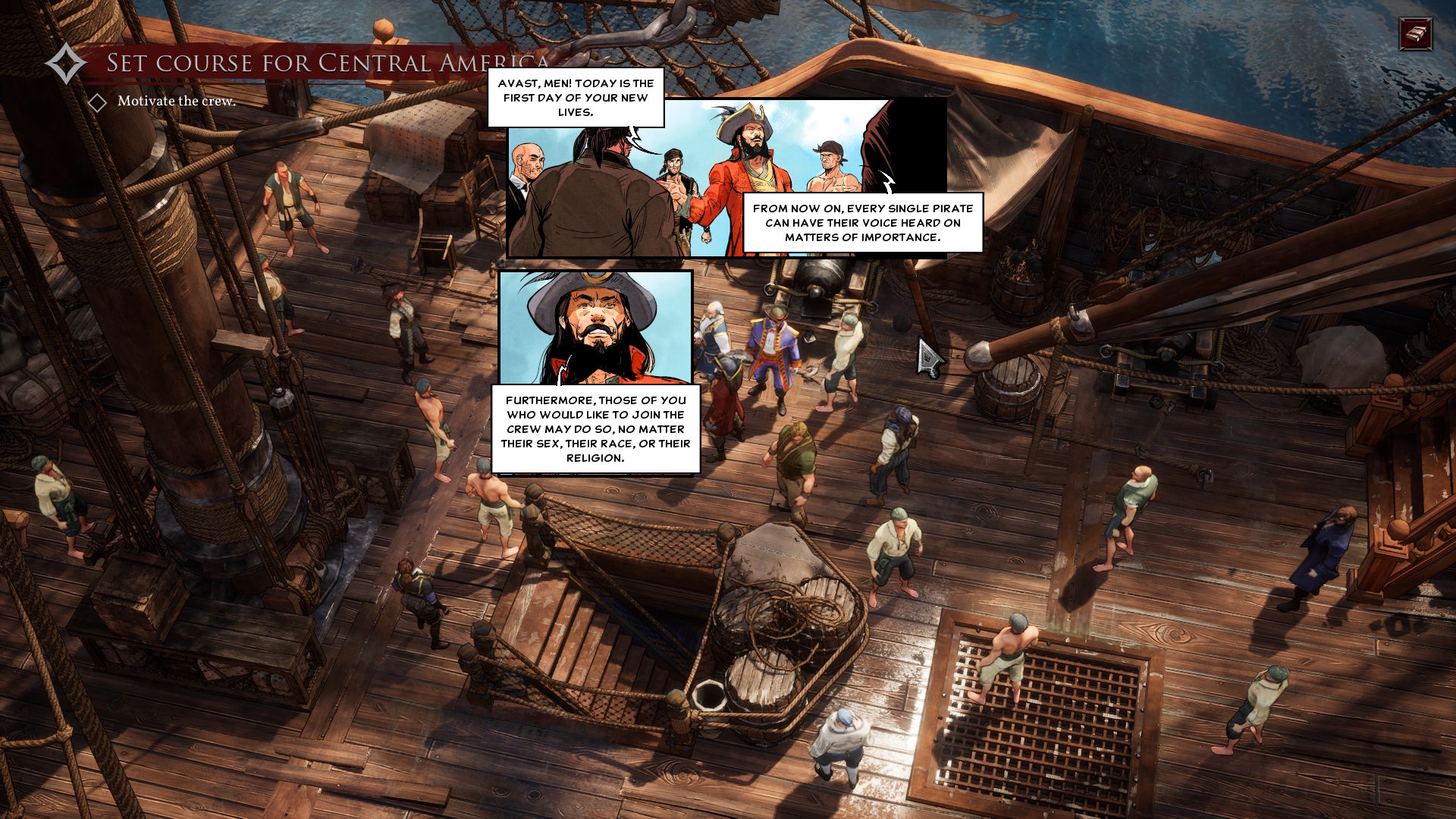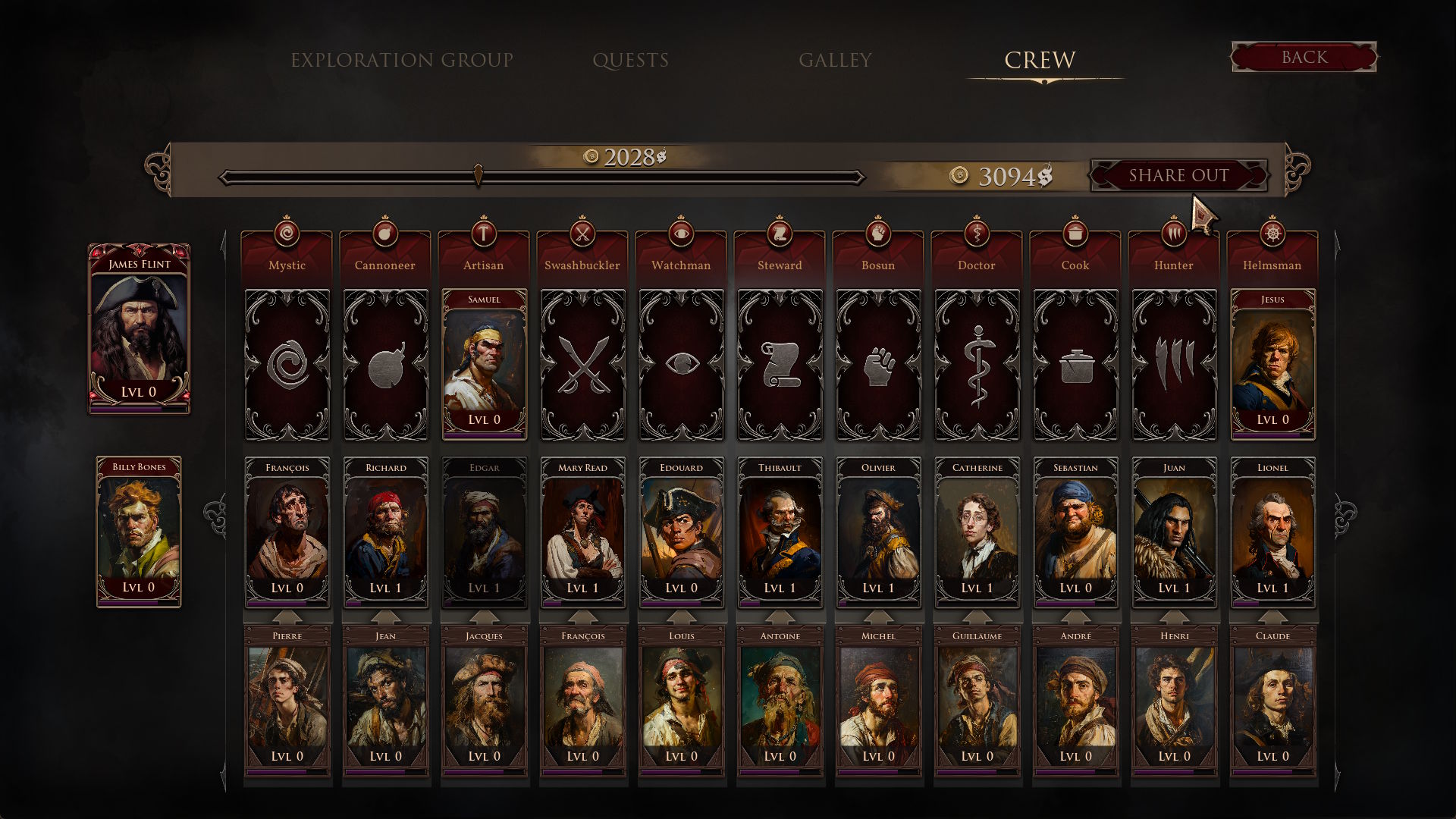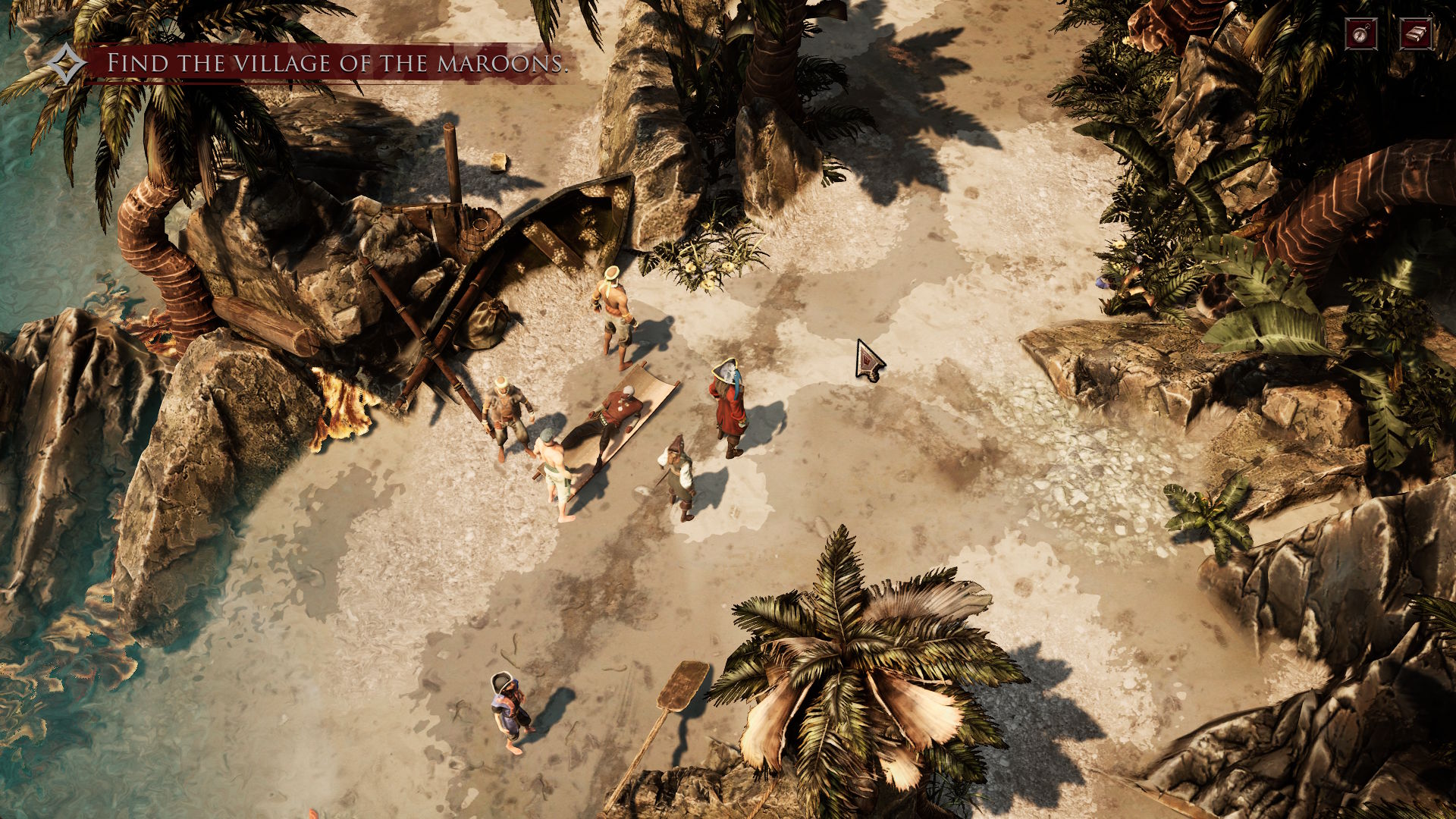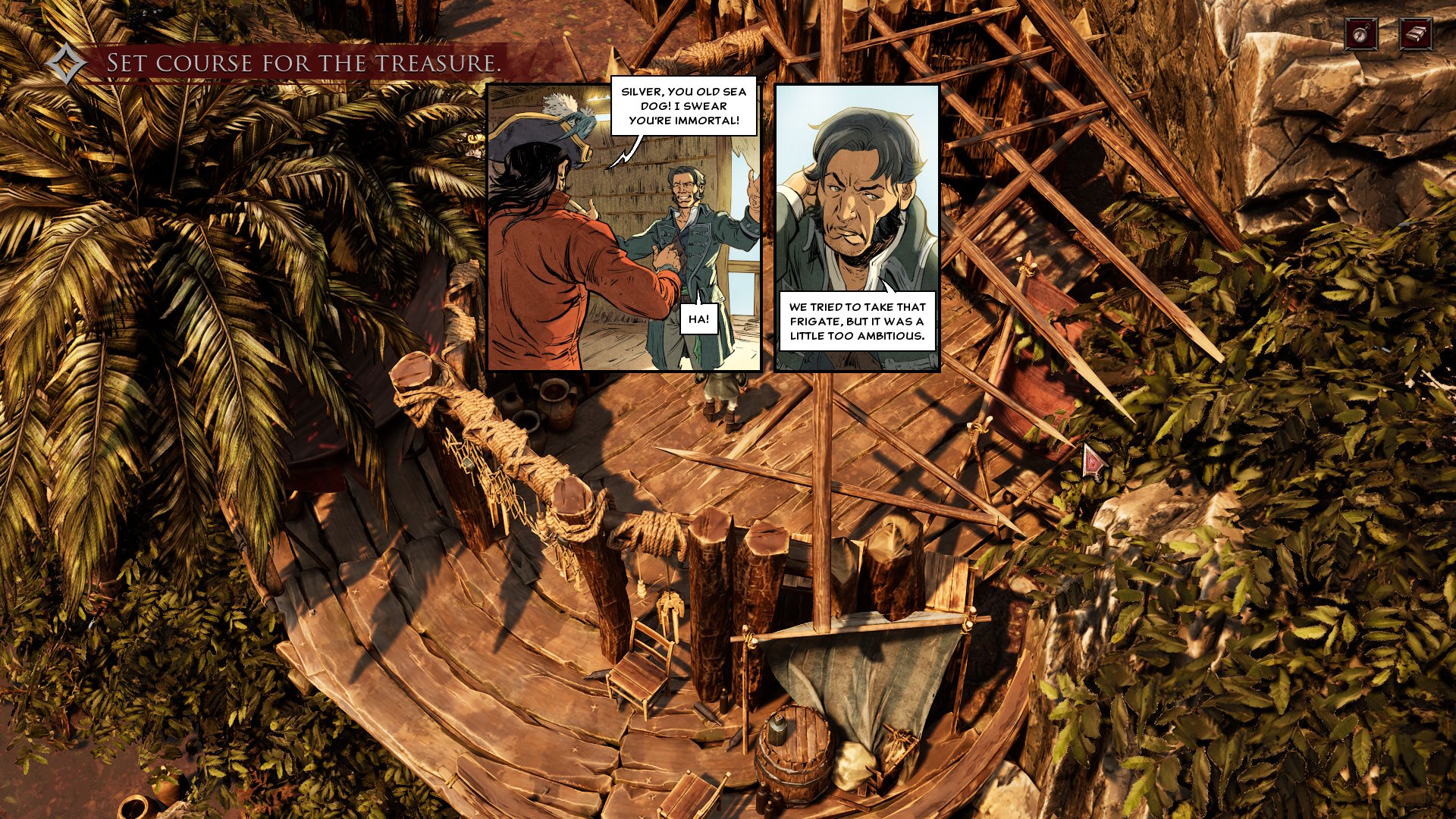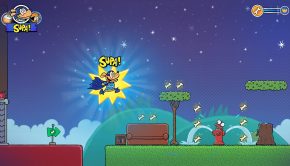Flint: Treasure of Oblivion PC Review
Summary: Embark upon the dice rolling seas in this tactical RPG pirate game.
4
Strategic Swashbuckling
There’s a certain charm to the mythologised world of Pirates… something far removed certainly from contemporary pirates. Flint: Treasure of Oblivion lets you step into the boots of Captain Flint and his friend Billy Bones as they seek mysterious treasure. Captain Flint certainly has his share of charm and almost makes the world of piracy seem enticing.
The game is very story focused, which is to say don’t expect an open world high seas sailing pirate game. The story is told through comic style panels and your movements are very “guided”. Sure you will visit cities, caves, islands and so on… but your movement doesn’t feel like it’s really up to you… there are no real side quests or opportunities to forge your own path… you need to visit set locations and perform set tasks. While I’m talking about movement… I found the movement itself felt quite clunky… sometimes clicking seems unresponsive and slow… not to a point where it’s unplayable… but certainly enough to feel frustrating and immersion breaking.
The visuals are quite nice and the comic panels are a nice touch. I’m not a huge fan of the voice acting/narrator… it’s not terrible… but it seems a bit off, it might be the rhythm. What does get a bit irritating is the fact that while in combat you are able to rotate the camera view… presumably with the notion it makes combat more accessible… but outside of combat you have no ability to shift from the predetermined viewing angle. I’m not entirely sure of the reason for this as some areas are the same in combat and “exploration”… though I suspect when walking around, locking down the view saves on having to create extra landscape that otherwise wouldn’t be seen.
Arguably combat is where this game sets itself apart from your average pirate game. It feels very D&D inspired and that’s a good thing. But it’s not just the use of dice to determine combat outcomes. As you progress you have the ability to share your plunder with the crew… doing so can result in them leveling up. The options for improving your crew range from improving their dice, simply increasing one of three basic stats or improving/providing new skills. These become more and more important as you continue, along with the enhancements you will find/uncover along the way these will become the difference between winning or losing a battle. What starts as fairly simple, facing off against an even number of opponents, quickly becomes tackling a significant military force or group of thugs. Picking the right move (including jumping down on an opponent from above) could turn the tides (so to speak).
Final Thoughts?
Though not without its flaws/quirks… Flint: Treasure of Oblivion is still a very worthy game. The ability to find dice re-rolls is helpful… learning that you should save them for special/more critical occasions is game changing. Whilst it might have been nice to rotate the camera during normal exploration… the visuals are nice enough that it’s still a pleasure to make your way through this storied world. Grab it if you want a more structured, storied pirate adventure.

